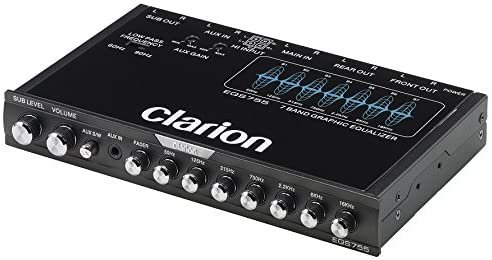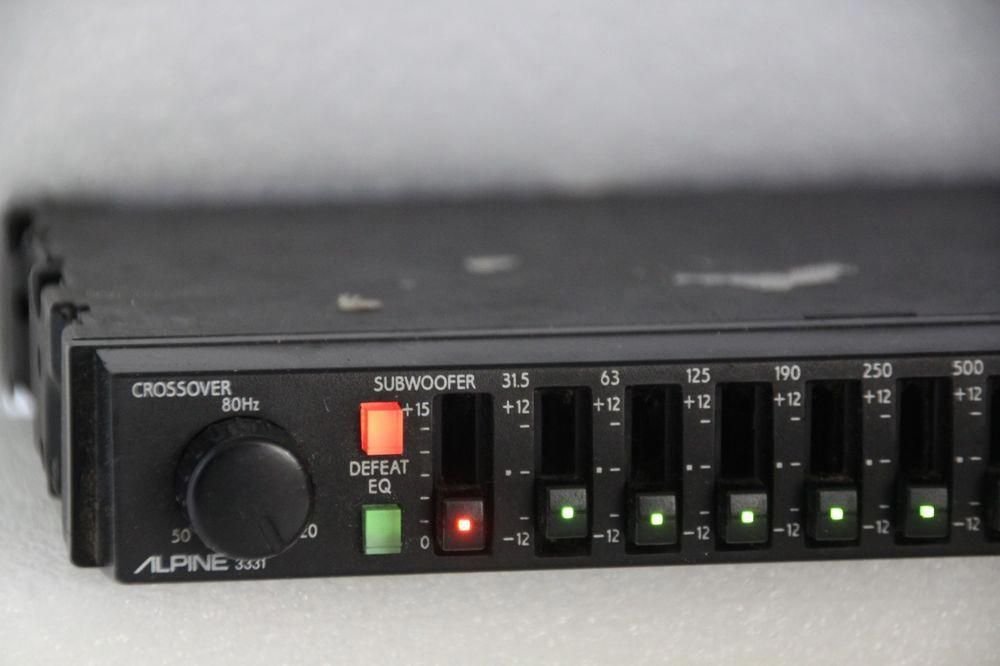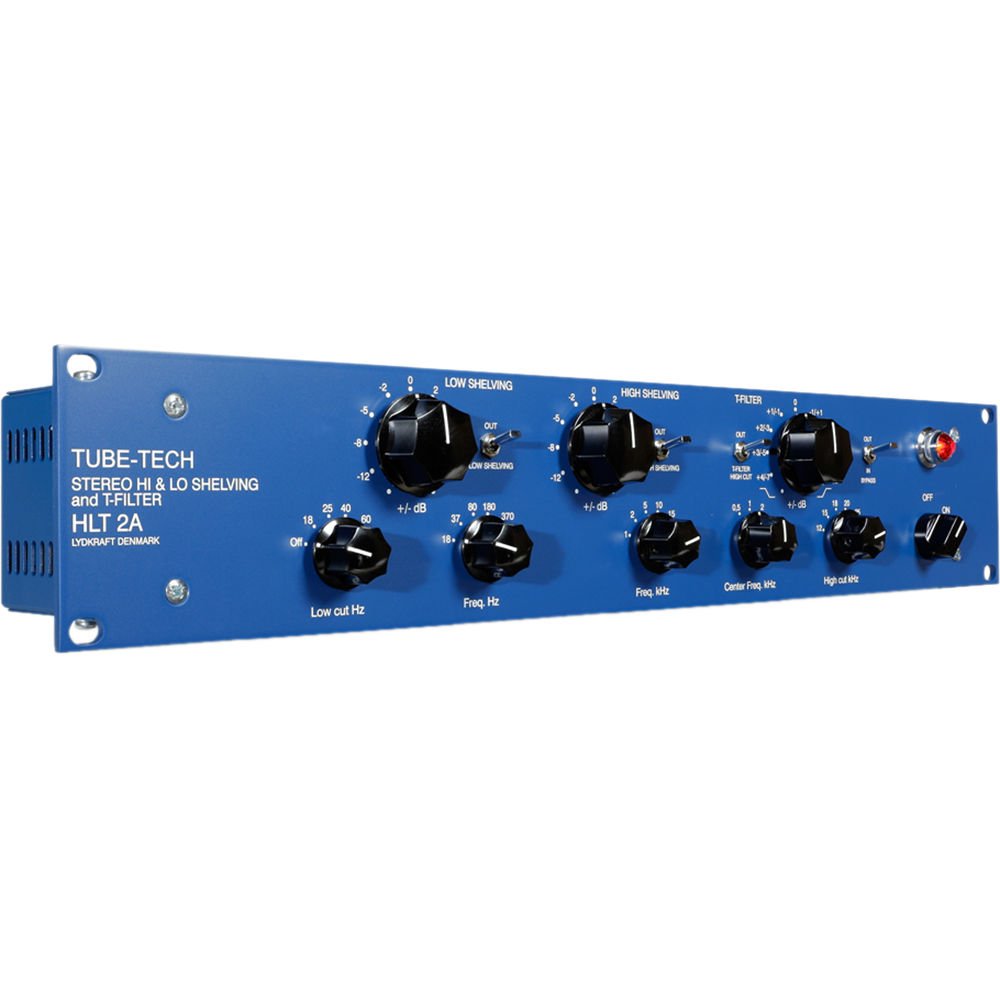Several car environments are not designed for optimal sound, so audiophiles have to come up with the most creative and productive ways to enhance and improve in-car audio. One of which is installing a carry equalizer. Car equalizers help to improve car audio by matching it with your environment with a few frequency tweaks. What is a car equalizer and what do they do? Find out below.
A car equalizer (EQ) is a sound device for adjusting advanced tone details outside the range of the bass, midrange, and treble knobs. This allows motorists to be specific about the details and mix of in-car audio, rather than simply relying on the limited controls on a stereo and amplifier. There are several types of Equalizers, ranging from the traditional under-your-dash EQs to advanced digital EQs that can be installed anywhere in your vehicle.
Before choosing an Equalizer for your vehicle, there are certain precautions that you must take. For example, does it fit your in-car stereo system, and does it have the extra controls to fine-tune your audio? While most EQs are designed to work with all stereo systems, a couple can only work with specific products.
Motorists need to find out the type of EQ best suited for their car environment and one designed to work efficiently with their available stereo.
Table of Contents
What Is A Car Equalizer
Car equalizer is a device specially designed to give motorists total control over the quality and vocals of the sound from their stereo. Car equalizers are equipped with filters and amplifiers to adjust each frequency range, thereby fine-tuning sound according to the driver’s preference.
While this may sound excessive, listening to your favorite music and radio stations according to your audio preferences improves your driving and listening experience as you commute.
The Benefits Of Installing An Equalizer In Your Vehicle
Why should you install an equalizer in your vehicle? Well, here are the benefits motorists have enjoyed over the past years.
-
Matching Acoustics
While advanced vehicles are now being designed with acoustics in mind, older vehicles don’t have the best environment for distinct sound reproduction. Hence, why different environments require different sound systems and speakers.
Installing an equalizer in your car enhances matching acoustics, which enables clear and precise sound reproduction. A car equalizer can be fine-tuned to override the negating surfaces of your vehicle to produce high sound fidelity.
Motorists can therefore enjoy music as it was recorded in the studio.
-
Signal Boost
Equalizers help to improve weak signals from the source to resist noise and for further processing by other sound equipment. It also makes the signal strong enough for speaker output, which eliminates distortion and makes the sound clearer for your listening pleasure. Installing an equalizer is the best solution to tackle constant weak signals from vulnerable sources.
Carpeted and upholstery materials in vehicles are also responsible for drowning signals, however, equalizers boost the signals to sound as clear as the production.
While interior frequencies of about 100 Hz to 200 Hz, which is quite popular, may be good for the bass frequency, it dulls other frequencies but by simply tweaking your in-car equalizer, you can boost the dulled signals.
These benefits help to improve car audio and driving experience for motorists as they commute to and fro. An equalizer, while not a necessary part of a car stereo system, is an important part of enhancing the car stereo. Find an inexpensive, yet powerful car equalizer here.
However, before making your purchase, check for compatibility with your existing car stereo. If you like what you see but don’t match your car stereo, then you may want to consider upgrading your stereo system.
Types Of Car Equalizers
Car equalizers are of different types, thereby fine-tune in-car audio differently. Their mode of operation and design is what differentiates them, along with cost. Here are the different types of car equalizers.
- Analog Equalizer
- Digital Equalizer
- EQ Booster
- Graphics Equalizer
Analog Equalizer
Analog EQs are a popular choice amongst audiophiles. They are cheap, great at tweaking tones and capturing accurate sound, thereby producing high sound fidelity. Analog EQs are inexpensive and would be a great addition to any vehicle’s sound system for clear audio enhancement.
Analog EQs offer clear sound production by simply playing through them. The rich harmonics they produce make them a must-have for audiophiles.
Digital Equalizer
Advanced controls for audiophiles who know their way around an equalizer and are in the market for transparent sound output.
Digital equalizers work by mimicking analog EQs but with an improved circuit design. Digital equalizers have a menu for easy configuration and tweaks.
Motorists can save settings to use another time. This eliminates the stress of having to constantly tweak your equalizer whenever you want to adjust in-car audio.
EQ Booster
EQ boosters are the powered version of equalizers. They feature both an equalizer and an amplifier in one.
Graphics EQs
These are EQs with visual representations of the changes being made to your Equalizer.
Factors To Consider When Buying An Equalizer For Your Car
With countless equalizers out there, it becomes imperative to select the best product and brands. But how do you manage that? Choosing the best equalizer for your car involves looking at the cost, compatibility, style, ease of use, and most importantly, quality. All of these should be at an optimal level before choosing an equalizer. Find the best car equalizers here.
Compatibility
An equalizer only works with your amplifier and stereo if it’s compatible with the unit. Most equalizers have universal compatibility with numerous aftermath stereos, however, several factory installed (OEM) stereos are selective.
You need to be sure that the equalizer you’re purchasing is designed to work with your stereo system, and if not, consider buying another equalizer or upgrading your old stereo. Consult your car manufacturer or a professional audiophile for the best digital equalizer for your stereo.
You may also want to consider the size. While equalizers are installed under the dashboard, most advanced aftermath products are installed in the trunk of the car. Do you have enough space? If not, consider buying a smaller unit.
Keep the equalizer in a safe space, away from liquid and dust to extend its lifespan and assure high consistency in performance.
Ease of Use
Analog equalizers are fitted with knobs and need constant configurations. However, digital and graphic equalizers have screen menus and visual illustrations of the waves which help to help configure and fine-tune settings.
These advanced equalizers require little to no knowledge on how to operate, meanwhile, analog EQs require at least an average technical knowledge of equalizers to use. Digital EQs also have a save feature that allows users to re-use a single configuration over and over again, unlike analog EQs that require constant configuration.
Notwithstanding the differences between analog and digital EQs, always choose the EQ that you can easily configure and understand to facilitate a satisfactory experience.
Style
While performance is the crux here, aesthetics shouldn’t be left in the back seat. Installing equipment that doesn’t fit into the overall aesthetics of your vehicle will leave you with an ugly interior. EQ manufacturers provide equalizers with different colors, shapes, and designs.
Choose the most appropriate one that fits your car’s interior. Make sure it is something you can look at every day as you drive.
Cost
A common myth is that higher-priced EQs provide the best quality, a lie that has affected the buying decision of most motorists. While high-priced EQs may offer better features and functions, you can still find reasonably priced EQs to do a decent job at fine-tuning your in-car sound. Different brands offer separate prices.
Make a comparison of some of the best EQs and choose the best price.
Performance
Arguably the most important feature to consider. EQs offer different levels of performance. Choose one that can perfectly fine-tune the sound in your car.




